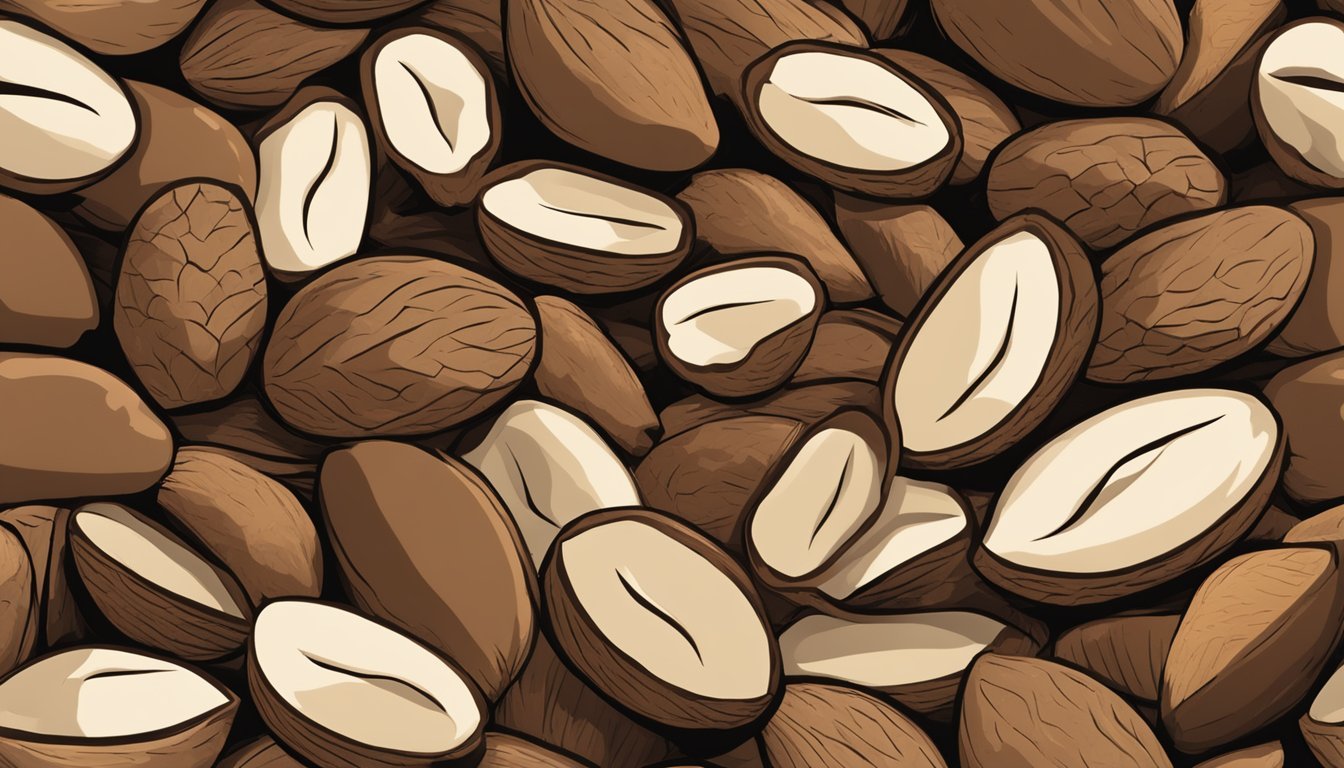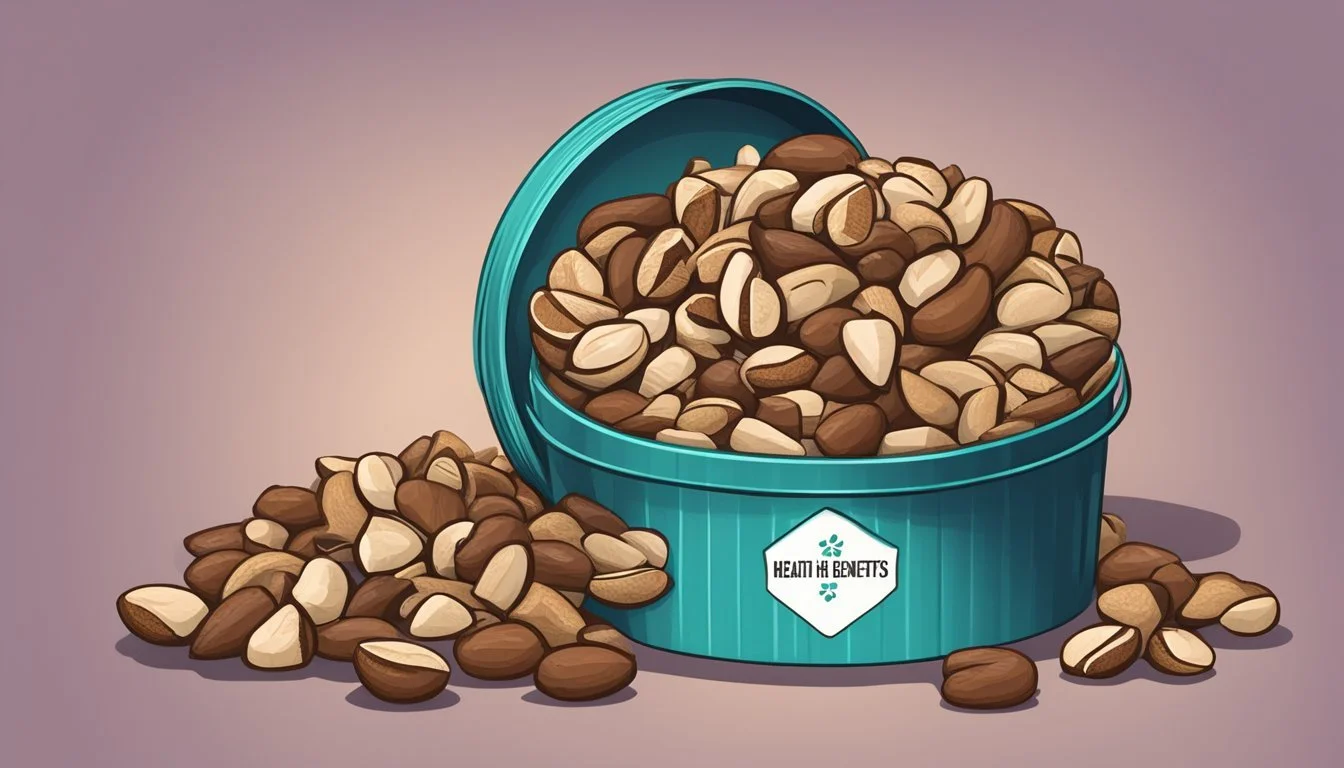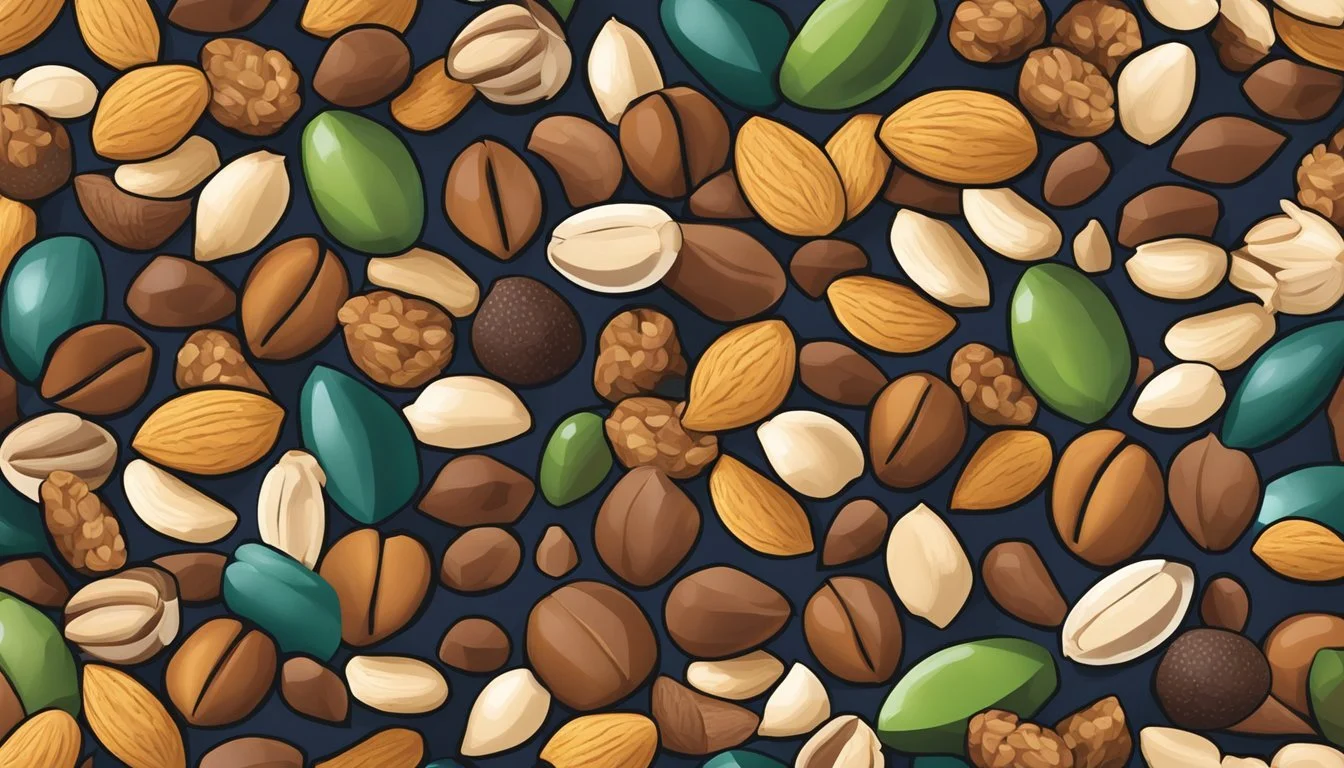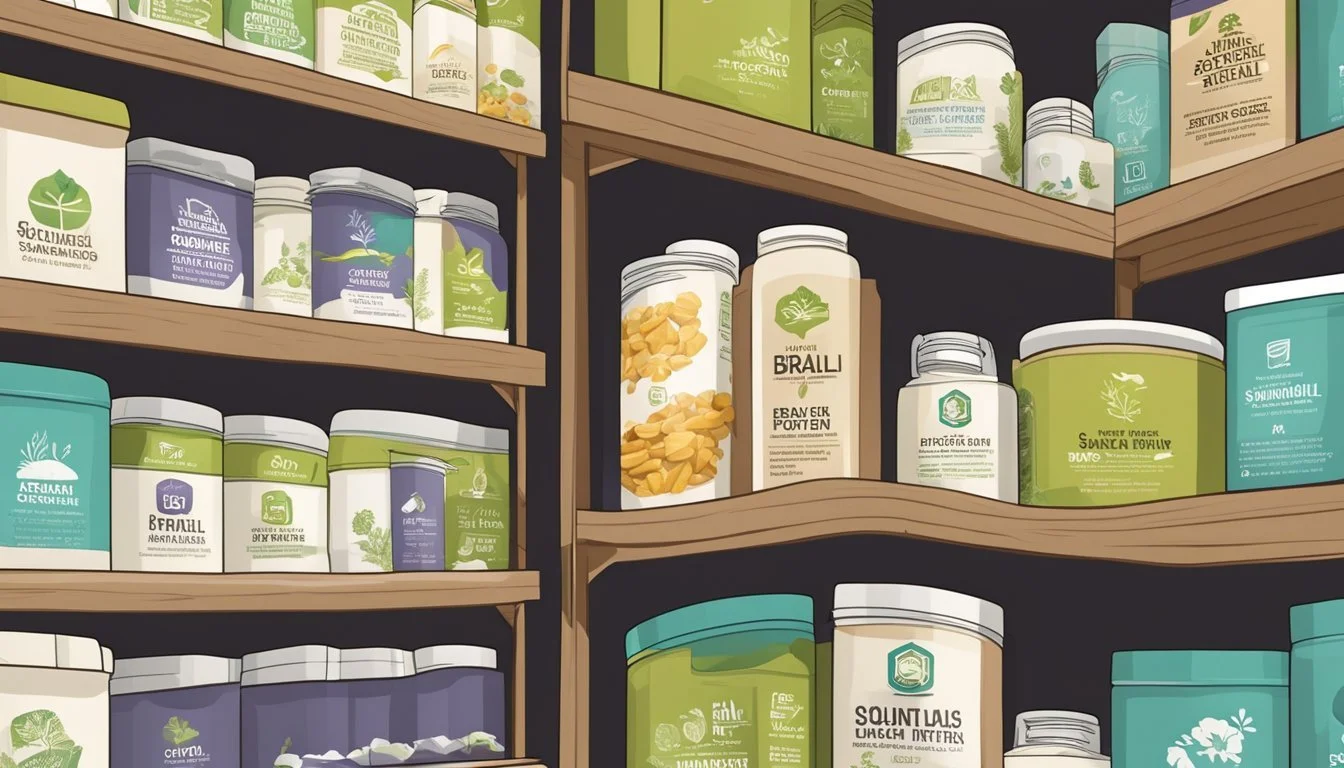Does Brazil Nut Protein Spoil?
Understanding Shelf Life and Storage Tips
Brazil nuts are not only a deliciously healthy snack but also a nutritional powerhouse, packed with essential nutrients like selenium, magnesium, and protein. Many people wonder, "Does Brazil nut protein spoil?" while storing these nuts. The answer is straightforward: Brazil nut protein does not spoil quickly, but the nuts themselves can go rancid if not stored properly.
Brazil nuts contain 60-70% oil and proper storage is key to maintaining their freshness and nutritional value. It's crucial to store Brazil nuts in an airtight container in a dark place to prevent them from spoiling. The protein content remains stable if the nuts are stored correctly, but the oils can become rancid when exposed to air, light, or heat.
Including Brazil nuts in your diet can contribute to your intake of essential nutrients, supporting overall health and wellness. With their rich protein content and beneficial fats, Brazil nuts make for a nutritious and convenient snack, as long as they are kept in optimal conditions to preserve their quality.
Composition of Brazil Nuts
Brazil nuts are rich in various nutrients including proteins, fats, and essential minerals. These components significantly contribute to their overall nutritional profile, making them valuable in a balanced diet.
Macronutrients and Calories
Brazil nuts are high in calories, with approximately 700 kcal per 100 grams.
The primary macronutrients include Protein, Fat, and Fiber. Each serving provides a considerable amount of protein, which helps in muscle building and repair. The fat content, mainly due to their natural oils, contributes significantly to their caloric density.
Brazil nuts are also a good source of dietary fiber, promoting proper digestion and satiety.
Vitamins and Minerals
Brazil nuts are notable for their high selenium content, with just one nut providing 175% of the recommended daily intake.
They also contain important minerals such as Magnesium, Copper, Phosphorus, and Manganese. For example, a single serving offers 25%-33% of the recommended daily allowance of magnesium, which is crucial for bone health.
Essential vitamins like Vitamin E are also present, acting as antioxidants to help protect cells from damage.
Fats and Fatty Acids
The fat content in Brazil nuts includes both Saturated and Unsaturated Fats. The majority of the fats are unsaturated, which are beneficial for heart health.
Saturated fats are present, but in smaller amounts compared to unsaturated fats. These nuts also contain significant quantities of omega-6 fatty acids and trace amounts of omega-3 fatty acids, contributing to their anti-inflammatory properties.
The combination of these fatty acids plays a critical role in maintaining cardiovascular health and providing long-lasting energy.
Health Benefits of Brazil Nuts
Brazil nuts offer several health benefits due to their rich nutrient profile. They are particularly high in selenium, healthy fats, and essential minerals, which can positively affect heart health, thyroid function, anti-inflammatory processes, and the immune system.
Heart Health and Cholesterol
Brazil nuts support heart health through their high content of polyunsaturated fatty acids (PUFAs) and omega-3 acids like alpha-linolenic acid (ALA). These healthy fats help lower LDL cholesterol levels, reducing the risk of heart disease.
A single Brazil nut contains beneficial fats and selenium, which is an antioxidant that counters oxidative stress, a contributor to heart disease. Additionally, minerals like potassium and magnesium in Brazil nuts help regulate blood pressure, further protecting against cardiovascular issues.
Anti-Inflammatory Effects
The anti-inflammatory effects of Brazil nuts are substantial due to their antioxidant properties, primarily from selenium. Antioxidants neutralize free radicals, reducing cellular inflammation and potential damage.
Manganese and copper found in Brazil nuts also play a role in anti-inflammatory processes. These minerals aid in the body's natural defenses against inflammation and can help in conditions where chronic inflammation is a concern.
Thyroid Function
Selenium is essential for optimal thyroid function, and Brazil nuts are one of the richest dietary sources of this mineral. Selenium is necessary for the production of thyroid hormones and the protection of the thyroid gland against oxidative damage.
Iron and zinc in Brazil nuts also contribute to thyroid health by supporting hormone synthesis and metabolism. Consuming Brazil nuts can help maintain balanced thyroid function and prevent disorders such as hypothyroidism.
Immune System Support
Brazil nuts enhance the immune system through their high selenium content, which is crucial for the functioning of various immune processes. Selenium stimulates the production of antibodies, improving the body's response to pathogens.
Zinc and copper are other key minerals in Brazil nuts that support immune health. They are involved in the development and activation of immune cells. Regular consumption of Brazil nuts thus ensures a robust defense mechanism against infections and diseases.
Potential Risks and Considerations
People consuming Brazil nuts need to be aware of potential allergic reactions and the effects of nutrient excess and imbalance due to their high selenium content and other nutritional factors.
Allergies and Intolerances
Brazil nuts can trigger allergic reactions in some individuals. These allergies may be mild to severe, potentially leading to symptoms such as itching, swelling, difficulty breathing, or anaphylaxis.
People with tree nut allergies should avoid Brazil nuts and products containing them. Cross-reactivity with other nuts can also occur, so it is important for individuals with known nut allergies to consult with a healthcare provider before consuming Brazil nuts.
Nutrient Excess and Imbalance
Brazil nuts are rich in selenium, a vital mineral, but consuming them in large quantities can lead to selenium toxicity. Symptoms of selenium toxicity include gastrointestinal distress, hair loss, fatigue, and irritability.
A balance in intake is crucial; typically, one to two Brazil nuts per day are sufficient to meet selenium needs. Additionally, Brazil nuts contain significant amounts of saturated fat, which can impact cholesterol levels if consumed excessively. Individuals with high cholesterol need to monitor their intake to prevent potential adverse effects on heart health.
By keeping these factors in mind, consumers can enjoy the benefits of Brazil nuts while minimizing potential risks.
Storage and Spoilage of Brazil Nuts
Storing Brazil nuts properly is crucial to maintaining their freshness and nutritional value. Knowing the signs of spoilage can help you determine whether these nuts are still safe to consume.
Signs of Spoilage
Brazil nuts can spoil, and recognizing the signs is essential for health and taste. Rancidity is a common issue due to the high-fat content in Brazil nuts. Rancid nuts have a sharp, sour odor and a bitter taste.
Visual inspection is also useful. Look for any discoloration or mold growth. The texture can change too; fresh nuts are firm while spoiled ones may become soft or shriveled.
If in doubt, rely on smell and taste. If they seem off, it's safer to discard them.
Optimizing Shelf Life
To maximize the shelf life of Brazil nuts, store them correctly. Cool, dry conditions are ideal. An airtight container is recommended to limit exposure to air, which can cause oxidation.
Storing them in a refrigerator can extend their life to over a year. For even longer storage, consider freezing them, which can keep Brazil nuts fresh for up to two years. Avoid places with high heat and humidity, such as near ovens or microwaves, as these conditions accelerate spoilage.
Label the storage containers with dates to keep track of their freshness.
Brazil Nut Uses in Diet and Cooking
Brazil nuts are versatile ingredients that can be included in various meals and snacks. They can be consumed on their own or used in a range of culinary applications.
Incorporating Brazil Nuts into Meals
Brazil nuts' rich and creamy texture makes them a popular addition to many dishes. They can be roasted and added to salads for extra crunch and nutritional value. Using Brazil nuts in trail mix is a common way to enjoy them as a snack.
Nut butter made from Brazil nuts is another delicious option. It can be spread on bread, added to yogurt, or used as a base in various recipes. For those interested in weight loss, Brazil nuts can be a filling and nutritious snack, consumed in moderation.
Brazil nuts are also excellent for baking. They can be used in cakes, breads, and other baked goods, lending a unique flavor and texture.
Varieties of Brazil Nut Products
There are several varieties of Brazil nut products available. Roasted Brazil nuts are a popular choice for snacking, offering a toasty flavor that many enjoy. Nut butter made from Brazil nuts is an excellent spread for various dishes.
Brazil nuts can also be found in prepared mixes, such as trail mix, which typically includes other kinds of nuts, seeds, and dried fruit. Adding Brazil nuts to salads can enhance both the flavor and nutritional profile.
Other specialty products include Brazil nut oil, which can be used in cooking or as a finishing touch to enhance the flavor of dishes.
Whether eaten whole, as part of a mix, or in processed forms like butter or oil, Brazil nuts provide a delicious and nutritious component to a balanced diet.
Comparing Brazil Nuts to Other Nuts
Brazil nuts share some nutritional similarities and differences with other nuts like almonds, cashews, and walnuts. Their unique profile influences both their health benefits and culinary uses.
Nutritional Comparison
Brazil nuts are notably rich in selenium, providing significantly higher amounts than other nuts. For instance, a single Brazil nut can offer 160-175% of the US Recommended Daily Allowance (RDA) of selenium, supporting functions like DNA synthesis and reproduction.
In contrast, walnuts excel in omega-3 fatty acids, which are beneficial for heart health. Walnuts also offer more protein per 100 grams compared to Brazil nuts, making them a more substantial source of plant-based protein.
While almonds are lower in selenium, they are rich in vitamin E, and you also get a good dose of monounsaturated fat, which is known to support cardiovascular health.
Cashews and pistachios stand out for their good balance of protein and healthy fats. Cashews, in particular, contain lower levels of saturated fats compared to Brazil nuts, which is often highlighted in discussions about heart health.
Flavor and Culinary Use
Brazil nuts possess a distinct, creamy texture and a slightly earthy flavor, making them suitable for various culinary applications. They are often used in baking and can be eaten raw or roasted.
Conversely, walnuts have a more robust, slightly bitter flavor due to their higher omega-3 content. They are a common addition to salads, baked goods, and even savory dishes.
Almonds are versatile with a mild, slightly sweet taste. They can be consumed as snacks, in desserts, or as almond milk, which is popular in vegan and dairy-free recipes.
Cashews have a buttery, mildly sweet flavor, which is why they are frequently used in vegan cooking to make creamy sauces or cheese substitutes. Similarly, pistachios offer a sweet, slightly tangy flavor, perfect for both sweet and savory dishes.
Environmental and Ethical Considerations
Brazil nut harvesting has significant environmental and ethical dimensions. Key considerations include its sustainability and effects on local communities.
Sustainability of Brazil Nut Harvesting
The Brazil nut (Bertholletia excelsa) tree is a critical aspect of South American rainforests, particularly in the Amazon basin. Harvesting nuts sustainably is essential to preserving these ecosystems.
Brazil nuts come from trees that can live up to 400 years, providing continuous ecological benefits. Sustainable harvesting practices ensure minimal environmental degradation. The process involves collecting the fallen fruit from the forest floor, which does not harm the trees.
Ethical harvesting practices also avoid deforestation, thereby preserving habitats for various wildlife species. Sustainable methods include controlled collection and discouraging logging activities around these trees.
Impact on Local Communities
The Brazil nut industry significantly impacts local communities in South America. This industry supports livelihoods, promoting economic growth in remote areas.
For Indigenous and rural populations, Brazil nut harvesting offers a viable income source. Ethical considerations involve ensuring fair wages and safe working conditions for harvesters.
Local involvement in the industry promotes community stewardship of the forest, creating a vested interest in sustainable practices. Supporting ethical and environmentally friendly harvesting not only aids conservation but also empowers local populations.









